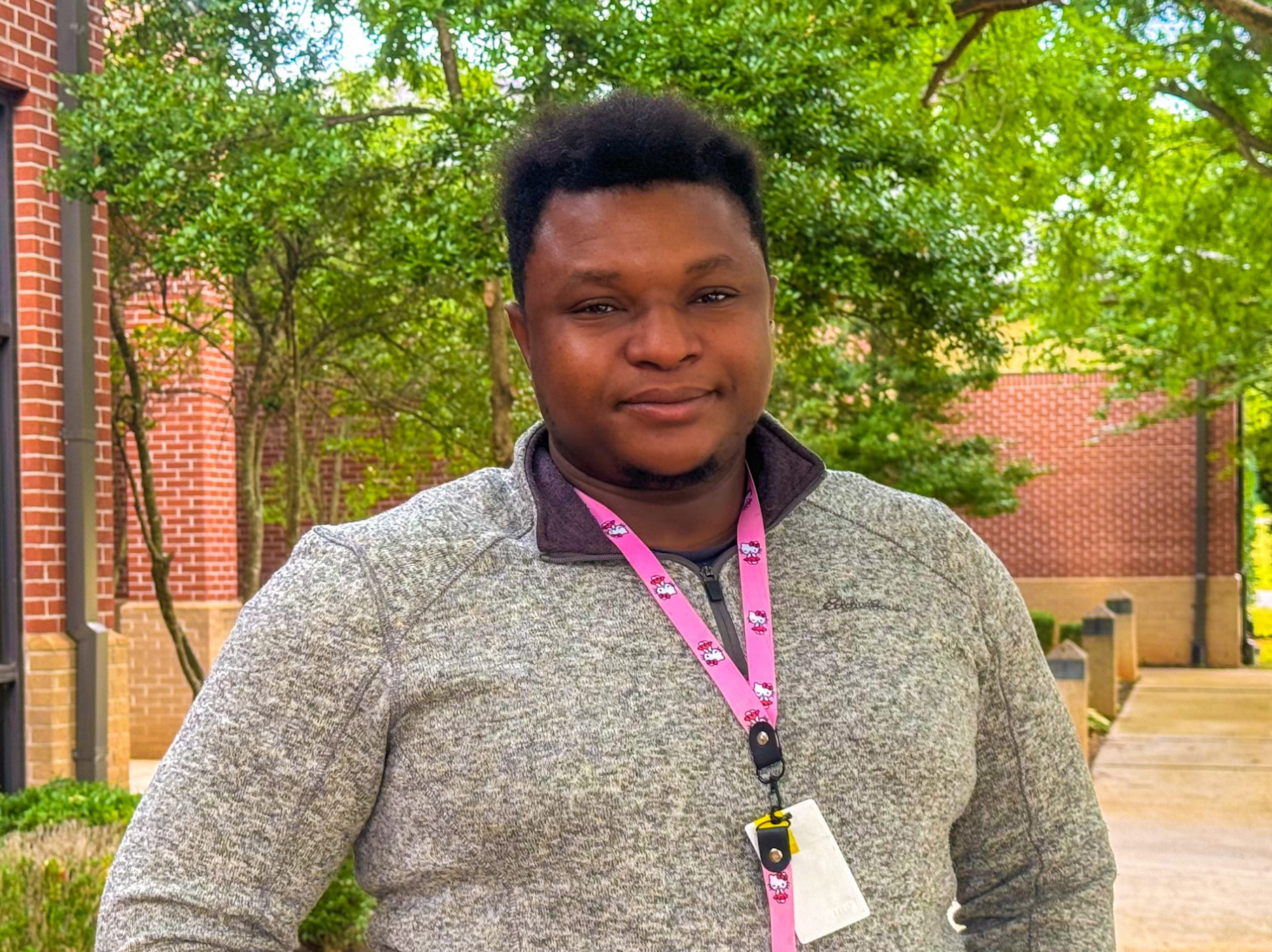Odunsi Earns Exclusive Training at Prestigious EMSL Summer School

Odunsi Joins Environmental Molecular Science Laboratory Project
Alabama A&M University Ph.D. student Ayodeji Adebola Odunsi has been chosen to attend the 2024 Environmental Molecular Science Laboratory (EMSL) Summer School: 1000 Fungal Proteins. Odunsi is one of only 24 researchers and students selected for this exclusive five-day program, which will take place from July 22-26 at the EMSL, a Department of Energy facility at the Pacific Northwest National Laboratory (PNNL) in Richland, Washington.
Originally from Ogun State, Nigeria, Odunsi earned his bachelor’s and master’s degrees in microbiology at the University of Lagos in Nigeria. He is currently pursuing a doctorate in food science at Alabama A&M University.
“My area of expertise is molecular biotechnology, specifically protein expression and enzyme kinetics,” Odunsi explained. “My research primarily focuses on regulating lipid production in the yeast species Yarrowia lipolytica under the guidance of Dr. Stylianos Fakas.”
The 1000 Fungal Proteins project aims to associate structure and function with poorly characterized or previously uncharacterized proteins that are highly conserved across the fungal kingdom. EMSL leverages both experimental and computational resources in structural biology to accelerate protein annotation, allowing researchers to explore biochemical, genetic, and cell biology approaches to characterize proteins based on samples provided by EMSL users.
“I believe my Ph.D. program in food science, my core in molecular food biotechnology, my current study on fungal proteins, and my relevant coursework were key factors in my selection,” Odunsi said. “I'm excited about the opportunity to attend.”
Odunsi highlighted the EMSL Summer School offers training in seven practical skills essential for researchers in biology, chemistry, biochemistry, and biophysics. These skills include cell-free expression and purification, cryo-electron microscopy (cryo-EM) screening and data collection, optical/Raman imaging, and whole-cell ultrastructural analysis.
“During my training, I will also have the opportunity to purify a protein I am working on, which will then undergo cell-free expression and cryo-EM workflows,” he added.
Odunsi plans to graduate in May 2026 and hopes to continue his work at Alabama A&M University as a post-doctoral student or research associate. Reflecting on his time at A&M, he said, “Academically, I have been both challenged and inspired. I have participated in the Food Science Club and attended various conferences and symposia, which have helped me grow professionally.”
Ultimately, Odunsi aims to contribute to expanding the knowledge of oleaginous fungi. “Oleaginous fungi are important for sustainable biofuel production under which renewable energy sources and environmental impact can be studied,” he said. “They also have nutritional and pharmaceutical applications that can help in new drug and food supplement formulations, industrial and biotechnological innovations, agricultural benefits, food industry applications, and scientific advancements.”